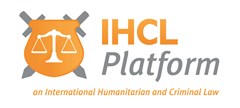The Treaty on the Prohibition of Nuclear Weapons: New Perspectives for Nuclear Disarmament?
06 November 2019- Starts at: 19:00h
- Fee: Free
- Venue: T.M.C. Asser Instituut
- Organiser: HILAC in cooperation with the International Humanitarian and Criminal Law Platform (IHCL)
-
Address:
R.J. Schimmelpennincklaan 20-22
2517 JN The Hague
Netherlands - Register
In 2017, the Treaty on the Prohibition of Nuclear Weapons (TPNW) was adopted at the United Nations with a vote of 122:1:1 States, in which no nuclear-armed State participated. With the notable exception of the Netherlands, none of the nine nuclear-armed States and no State seeking its external security under the umbrella of a nuclear power had participated in the negotiations. The TPNW can be understood on the background of failures to implement the disarmament obligations existing under the 1968 Nuclear Non-Proliferation Treaty (NPT) and customary international law, three critical abstentions and one withdrawal from the NPT, and increasing concerns on the humanitarian consequences of the threat or use of nuclear weapons that unfolded over the past years.
There is considerable controversy on the practical impact and relevance of the TPNW for nuclear arms control, disarmament and international security. Following the existing treaty prohibitions of biological (1972) and chemical weapons (1993), the remaining category of weapons of mass destruction (WMD) would be banned once the TPNW enters into force. It is an important step towards a world free of nuclear weapons and it constitutes a paradigm shift in arms control law, in particular due to its humanitarian inspiration. However, considering the unlikelihood of the nuclear-armed States joining the TPNW in the near future, it might not only remain ineffective but even undermine existing treaty regimes, such as the NPT. The opponents of the treaty also claim that it might even have the potential to endanger international security by deepening the gap between the nuclear-armed States and their allies on the one hand, and the non-nuclear-weapon States on the other.
Following different approaches to nuclear disarmament, the speakers will address controversial viewpoints and invite participants to engage in this debate.
Speakers
- Dr Daniel Rietiker is a lecturer of international law at University of Lausanne and an adjunct professor of human rights at Suffolk University Law School (Boston MA). He is also a senior lawyer at the European Court of Human Rights. He holds a diploma from the Geneva Graduate Institute for International and Development Studies and a PhD from the University of Lausanne. In 2014, he has been a visiting fellow at Harvard Law School in view of his publication “Humanization of Arms Control: Paving the Way for a World Free of Nuclear Weapons” (Routledge 2017). He is a general editor of the Hague Yearbook of International Law and a member of the ILA Committee on Nuclear Weapons, Non-Proliferation and Contemporary International Law. His publications cover international law, arms control and human rights.
- Dr Dieter Fleck is Honorary President of the International Society for Military Law and the Law of War, Member of the Advisory Board of the Amsterdam Center for International Law, and Rapporteur of the Committee on Nuclear Weapons, Non-Proliferation and Contemporary International Law of the International Law Association. He has served as legal advisor in various Bundeswehr commands, the German Chancellor's Office, and the Federal Ministry of Defence, where he was last Director International Agreements & Policy. He has widely published on issues of international law and security.
About HILAC
The Hague Initiative for Law and Armed Conflict (HILAC) is an initiative of T.M.C. Asser Instituut, the Netherlands Red Cross, and the Amsterdam Center for International Law (ACIL). The HILAC-lecture series aims to bring together all who are interested in International Humanitarian Law.


